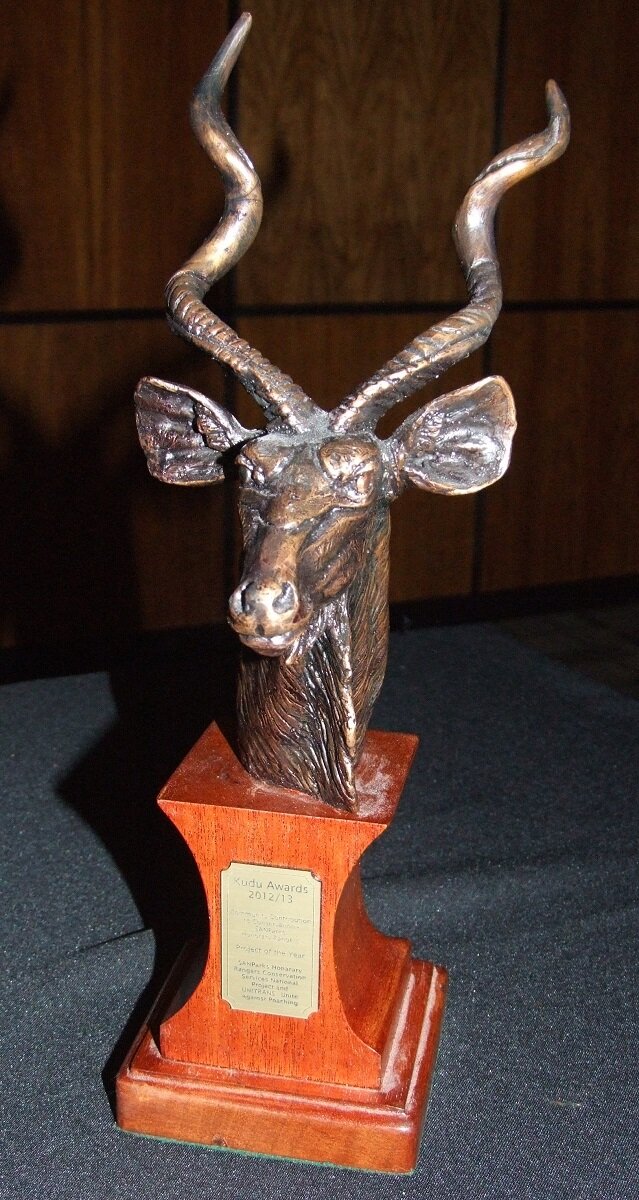10 year old Jenna B takes up the fight to save our rhinos
Sep 14 2016- Details
-
10 year old Jenna B fights poaching with her own range of toiletries
Ten year old entrepreneur from Cape Town, Jenna Bischoff has decided to add her “light weight” to help the fight to save our African Rhinos from extinction. She collaborated with her father, a manufacturer of toiletries and cosmetics, to produce a liquid soap and hand lotion, called Jenna B from which 100% of the profit made will be donated to Unite Against Poaching, to help fund their anti-poaching efforts.
“Unite Against Poaching is delighted to endorse the Jenna B range of products in support of saving our precious rhinos from the ravages of poaching. We commend this initiative by a concerned young lady. Our youth are taking a stand to secure our rhinos for future generations and we wish Jenna great success with this exciting project. Thank you for caring and for making a difference.”
Read more: 10 year old Jenna B takes up the fight to save our rhinos
Press release Minister Edna Molewa - May 2016
May 10 2016- Details
-
Highlights of the progress in the fight against Rhino Poaching- Press briefing 6 May 2016
This is the second report-back we are having for 2016, and forms part of our regular briefings to the nation on our progress in addressing rhino poaching.
We are here as a collective in recognition of the seriousness of the issue we are dealing with, which necessitates a multi-disciplinary, multi-sectoral intervention involving various sectors, that includes the South African National Defence Force (SANDF), who are providing invaluable support to us in the Kruger National Park (KNP).
SA will NOT legalise trade in Rhino Horn
Apr 21 2016- Details
-
20 April 2016 PARLIAMENT – South Africa will not legalise the trade in rhino horn, but stick to its efforts to beef up anti-poaching strategies within its borders, Minister in the Presidency Jeff Radebe said on Thursday.
Briefing the media in Parliament, Radebe said last week’s cabinet meeting endorsed recommendations by a committee of inquiry looking into the feasibility of trading in rhino horn as an option to preserve the country’s rhino population.
“The recommendations endorse South Africa’s integrated strategic management approach to resolving the poaching of rhino and illegal trade in rhino,” Radebe said.
“The committee recommends that the current mode of keeping the country’s stock levels be kept as opposed to the trading in rhino horns.”
The recommendations were also endorsed by an inter-departmental technical advisory committee set up last year to investigate the viability of legalising the trade in rhino horn.
Edna Molewa argues that conservation is for the benefit of all communities
Feb 08 2016- Details
-
In September, South Africa will host the 17th conference of the parties to the Convention on International Trade in Endangered Species of Wild Fauna and Flora. That we have been given an opportunity to host this important event is testimony to South Africa's role at the forefront of conservation of species.
South Africa is the third-most mega-biodiverse country in the world, after Brazil and Indonesia, and contains 7.5% of the planet's plant species as well as 5.8% of its mammals and 8% of its birds.
Win over the people and we will win rhino-poaching war
We are particularly proud of our rhino conservation record, being home to more than 80% of the world's remaining white and black rhinos. It is this very successful conservation record that makes us a target for transnational organised crime syndicates involved in the illicit trade in wildlife.
Last month, the government, through the interministerial committee responsible for rhino poaching, announced that for the first time in a decade, rhino poaching figures had fallen.
This is largely a result of the integrated strategic management of rhinoceros approach adopted in 2014, as well as successful partnerships between various stakeholders including government departments, business, civil society and communities.
Although the figures give cause for optimism, we shall continue to scale up efforts to ensure more rhinos are not lost to poaching. Key to our efforts is involving all South Africans, for we cannot eradicate this problem unless communities see the value of conservation to their lives and livelihoods.
Regretfully, an incorrect perception exists in some quarters that rhino conservation is the preserve of the select few, who are in the main moneyed and with access to vast resources.
Read more: Edna Molewa argues that conservation is for the benefit of all communities






 Mitec Solutions
Mitec Solutions